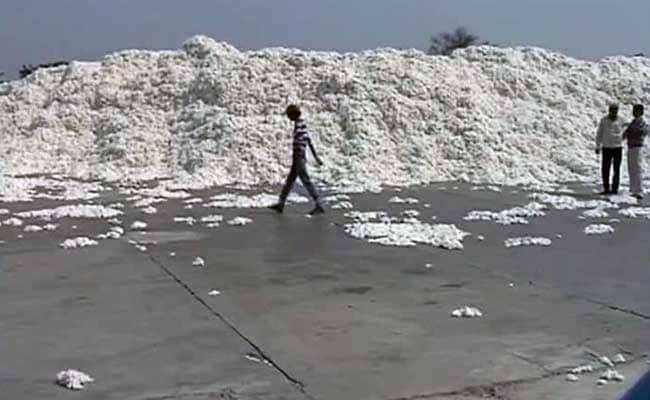The money they put into farming is much more than what they get in return, say farmers.
Yavatmal, Maharashtra:
It was an electoral promise that touched millions of farmers - an increase of Minimum Support Price by 50%. And many of them were convinced: Narendra Modi was their clear choice for being India's Prime Minister.
But over the last year and half, their disappointment has grown.
"Farmers voted for Modi on his promise to increase the MSP by 50%. But I have no hope at all," said Kishore Tiwari, a farm activist from Yavatmal district. "Farmers punished the Congress. If it continues the same way then the same scenario awaits the BJP," said Mr Tiwari, the man BJP picked up to head the Farmers Distress Management Task Force in Maharashtra.
The disappointed farmers were outspoken. The money they put into farming is much more than what they get in return, they say.
Take the case of cotton. In Yavatmal's Pandharakawa belt, Mahesh Bolkuntwar narrated the list of expenses to grow cotton on one acre of land.

"Seeds: Rs 1,000. Fertiliser: Rs 10,000. Pesticide: Rs 6,000. Labour: Rs 10,000. Tractor: Rs 1,500. Plucking: Rs 4,000. Transport: Rs 1,500," he explains. "That's a total of Rs 34,000. I grow seven quintals. The government's MSP is Rs 4,000/quintal. So I can get Rs 28,000. That's Rs 6,000 less than what I invested."
So he heads to Agrawal Ginning & Pressing Private Limited, a private player who is willing to pay him Rs 31,500 for his hard work.
He still ends up making a loss, albeit a smaller one.
And here is the irony: the then mill processes it and sells it for double the price.
"We buy cotton from farmers at Rs 4,500 per quintal and sell it to spinning yarns at Rs 9,200 after processing it," confirmed Vikrant Khaitan, the MD, Agrawal Ginning & Pressing Private Limited.
Despite the losses, the farmer still has to run his family: pay partially for electricity, healthcare and education of his kids.
The stress becomes all too visible at Bolkuntwar's fields, where a dozen bottles of cheap country liquor are strewn all over. "I buy country liquor for my labourers, because otherwise they cannot handle the toxicity of pesticides. That's the ground reality," he said.
But over the last year and half, their disappointment has grown.
"Farmers voted for Modi on his promise to increase the MSP by 50%. But I have no hope at all," said Kishore Tiwari, a farm activist from Yavatmal district. "Farmers punished the Congress. If it continues the same way then the same scenario awaits the BJP," said Mr Tiwari, the man BJP picked up to head the Farmers Distress Management Task Force in Maharashtra.
The disappointed farmers were outspoken. The money they put into farming is much more than what they get in return, they say.
Take the case of cotton. In Yavatmal's Pandharakawa belt, Mahesh Bolkuntwar narrated the list of expenses to grow cotton on one acre of land.

Even selling cotton to private players, farmers say they end up making a loss.
"Seeds: Rs 1,000. Fertiliser: Rs 10,000. Pesticide: Rs 6,000. Labour: Rs 10,000. Tractor: Rs 1,500. Plucking: Rs 4,000. Transport: Rs 1,500," he explains. "That's a total of Rs 34,000. I grow seven quintals. The government's MSP is Rs 4,000/quintal. So I can get Rs 28,000. That's Rs 6,000 less than what I invested."
So he heads to Agrawal Ginning & Pressing Private Limited, a private player who is willing to pay him Rs 31,500 for his hard work.
He still ends up making a loss, albeit a smaller one.
And here is the irony: the then mill processes it and sells it for double the price.
"We buy cotton from farmers at Rs 4,500 per quintal and sell it to spinning yarns at Rs 9,200 after processing it," confirmed Vikrant Khaitan, the MD, Agrawal Ginning & Pressing Private Limited.
Despite the losses, the farmer still has to run his family: pay partially for electricity, healthcare and education of his kids.
The stress becomes all too visible at Bolkuntwar's fields, where a dozen bottles of cheap country liquor are strewn all over. "I buy country liquor for my labourers, because otherwise they cannot handle the toxicity of pesticides. That's the ground reality," he said.
Track Latest News Live on NDTV.com and get news updates from India and around the world



